Modern Times
Charles Chaplin is regarded, quite rightly, by many as one of the greatest filmmakers, not only the silent era, but of all time. A quick look through his filmography from the numerous shorts to The Kid, The Circus, City Lights and then to sound films like Limelight, A King in New York and Monsieur Verdoux will show what an adaptable and rounded director he was as well as being a tremendous writer and actor.
Chaplin was considered many things, but a social satirist and political commentator was probably not one of them. In 1936, however, he wrote and directed a film which was a scathing attack on the social provision for unemployed workers, orphans and even those in work on the factory line. It isn't the most subtle of satires, beginning with an intertitle saying that the film is about people striving for the pursuit of happiness before a shot of sheep rushing through a gate dissolves into footage of people hurrying to work.
Modern Times sees Chaplin in his guise as the Little Tramp who is working in a factory tightening cogs on an undefined product on a conveyor belt that seems to move at an ever-increasing rate. The factory is run by a Big Brother-esque owner/manager who appears on massive screens around the factory instructing people to increase production in various areas and even in the toilet where Chaplin's character has gone for a cigarette break.
As the work is some sort of Fordist nightmare with the workers forced to move at an ever-increasing rate, performing their mundane tasks hour after hour until the lunch whistle sounds, there is hardly any rest. When they do get a break, Chaplin's Little Tramp doesn't have any food so is selected as the candidate to try out a brand-new machine which will do away with lunch breaks altogether, designed to feed people while they work. Predictably enough, the machine malfunctions and throws soup all over Chaplin, feeds him metal nuts and continually assaults him with the antiseptic mouth wiper.
Eventually, the Little Tramp suffers a nervous breakdown, follows the conveyor belt through the giant system of cogs and then runs amok, causing massive damage to the factory until he is taken away by the men in white coats to a sanatorium. Following his release from the hospital, he is unemployed and the factory has shut down and, innocently following a wagon down the road, picks up a red flag that falls off the back and, waving the flag and following the wagon, he is followed by a group of striking communists so is arrested as a communist ringleader.
In jail, he manages to stay out of trouble until one lunchtime when the man next to him, a cocaine smuggler, sees that he is about to be searched so dumps his "nose powder" (as the intertitle calls it) into the salt cellar next to him and, when the Little Tramp decides to add a little salt to his bland dinner, he is immediately affected and, after ingesting a large amount of the substance, is so high that he walks around in circles and unwittingly foils a jailbreak.
Regarded by the authorities as some sort of hero, he is given an extremely pleasant cell, is treated very well and fed pleasantries three times a day so, when the order comes to pardon him, the Little Tramp is far from happy. Released in two world where jobs are scarce, he tries his at working in a shipyard which ends rather badly when he unwittingly launches a half built boat and does everything he can to get arrested and thrown back in jail. One of these attempts sees him cross past with the 'gamin', an urchin girl who has no mother, an unemployed father and two younger sisters who rely on her to steal food for them to eat. When she runs off with a loaf of bread from the back of a baker's van, she bumps into the Little Tramp, knocking them both to the floor and, spying an opportunity to get into trouble and do a good deed while he's at it, the Little Tramp says that he stole the bread, not the young woman and, in the midst of the mayhem, the policeman decides to arrest the gamin.
Still desperate to find his way back into jail, the Little Tramp walks into a cafeteria and orders to massive platefuls of food which he can't pay for and, when the policeman comes, he compounds the insult by ordering a cigar and buying sweets for some street children then refusing to pay. Thrown in the back of the police wagon along with the gamin, he is torn between wanting to return to prison and his desire to help this young woman out. When the wagon crashes, she convinces him to run off with her and go on the Lam.
Modern Times is the last appearance of the Little Tramp (his next film would be The Great Dictator before moving on to the sound era) and I can't think of a film more fitting as a send off to one of cinema's most beloved characters than this and City Lights, the film that preceded it. Chaplin had clearly made a decision to allow his personal politics to influence his artistic life and, with Modern Times, Chaplin was making a statement about how tough life was for the average man on the street in the world only seven years removed from the Wall Street crash and still in the grip of a depression.
This is a masterpiece of filmmaking with numerous memorable scenes and scenarios and the factory set with myriad cogs, clock wheels, levers and other mechanical gizmos is truly a nightmarish creation that isn't too far removed from the giant Moloch machine from Fritz Lang's Metropolis. I can only imagine that the depiction of such a world would have struck a chord with the average cinema goer in 1936 who would recognise all of the scenarios that Chaplin includes in the film and would resonate with a population still reeling from the Great Depression.
THE DISC
Extra Features
There is nothing on the disc other than chapter selection but the set apparently comes with a DVD that includes the brilliant Chaplin Today mini documentary, an introduction by David Robinson, deleted scenes, Chaplin karaoke, a trailer reel and photo gallery. I have no idea what the Chaplin Karaoke involves as the disc wasn't provided for review but it sounds an intriguing concept!
The Picture
As Eureka proved with their stellar release of F.W. Murnau's Sunrise, old black-and-white films can look extraordinarily good when remastered and released on Blu-ray Disc and this release of Modern Times is astonishing. Considering it was made in 1936, the edges are sharp, contrast levels are deep and detail is extremely high. Even when compared to an upscaled recently released DVD, this looks absolutely stunning in its clarity and definition.
The Sound
You have the choice of LPCM 2.0 stereo or DTS-HD Master Audio 5.1 and, try as I might, I really couldn't detect a difference between the two as they both stick rigidly to the centre speaker with occasional use of the front surrounds and are both as clear as you could possibly wish for.
The score, composed by Chaplin, is a wonderful piece of music that perfectly evokes the tone and feel of the piece, underscoring comedy, emotion and dramatic scenes extremely well.
The penultimate scene in which Chaplin, as a singing waiter, loses the lines that have been carefully written on his cuffs, improvises and sings a bizarre song comprising various languages from continental Europe (French, Italian, Spanish etc) and even words that don't exist comes across beautifully and I found myself humming the tune as I went to sleep that night!
Final Thoughts
Even if you already own Modern Times on DVD, this is well worth considering as an upgrade because the AV package is so much better than on the 2003 Warner Home Video DVD release that fans of Chaplin's work would be foolish not to pick this up.
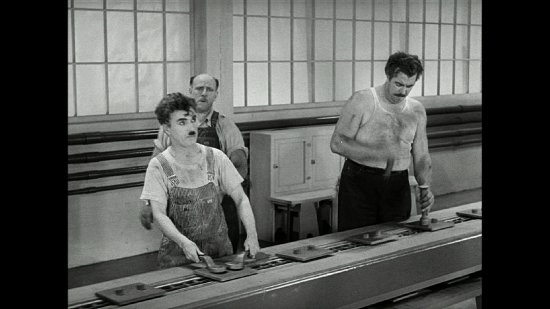
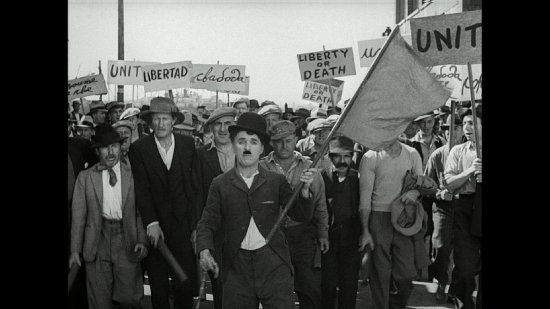
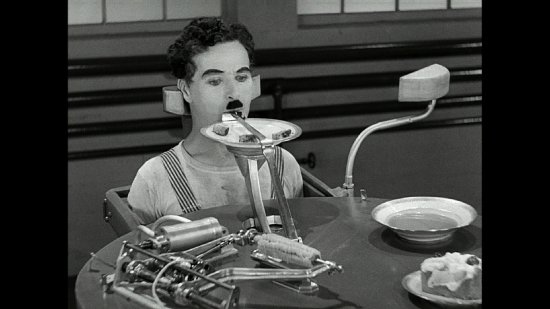
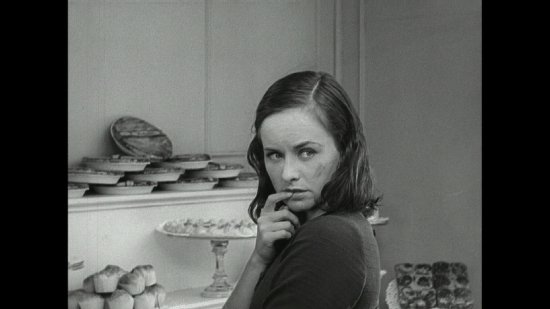
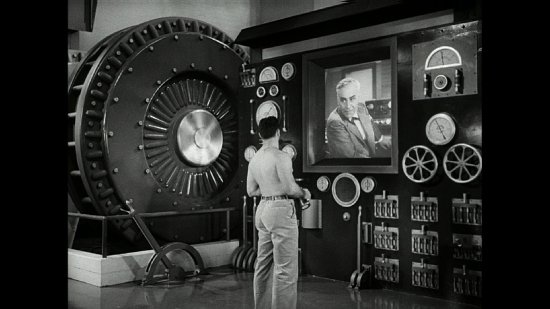
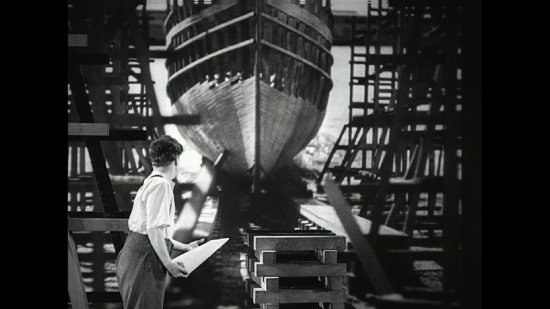
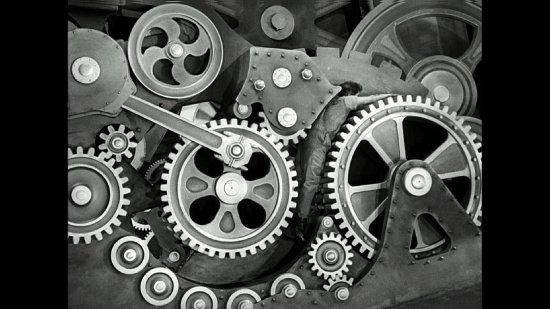
Your Opinions and Comments
Be the first to post a comment!